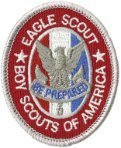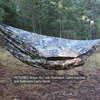Open Discussion - Program
Share Scouting Topics here.
Subforums
-
- 815
- posts
-
- 2.8k
- posts
9671 topics in this forum
-
- 12 replies
- 1.6k views
-
- 21 replies
- 2.9k views
-
- 8 replies
- 889 views
-
- 26 replies
- 2.2k views
-
- 50 replies
- 6.1k views
-
- 4 replies
- 948 views
-
- 24 replies
- 2.5k views
-
- 8 replies
- 1.3k views
-
- 25 replies
- 2.1k views
-
- 11 replies
- 3.7k views
-
- 8 replies
- 1.2k views
-
- 41 replies
- 4.4k views
-
- 4 replies
- 823 views
-
- 67 replies
- 7.2k views
-
- 17 replies
- 1.6k views








